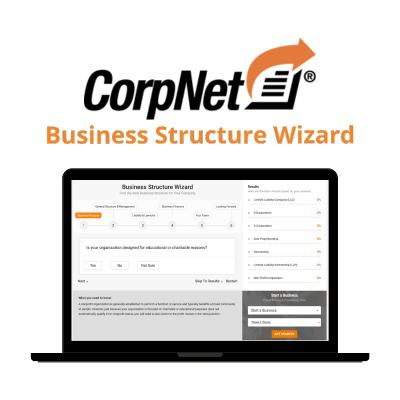Launching a new business in Indiana can be a smart move due to the state’s favorable business environment. Characterized by relatively low corporate taxes, reasonable regulatory requirements, and a comparatively affordable cost of living, Indiana’s central location gives it easy access to a broad customer base. The state also boasts a skilled and diverse workforce supported by renowned universities and vocational institutions, providing a talent pipeline for various industries.
Below is a checklist of what you need to know to start your Indiana business.
1. Fine-Tune Your Business Idea
Make sure your business concept has the potential to succeed before investing your time and money. You can make an informed decision by conducting a feasibility study. Identify red flags by sharing your idea with trustworthy advisors like SCORE mentors, business consultants, accountants, and attorneys.
2. Write a Business Plan
A business plan can help you focus on your strategies when starting a business in Indiana. The purpose of a business plan is to outline and define your goals and describe the steps you will take to achieve them. Business plans can be detailed and in-depth or short and sweet. Depending on the type of business you’re starting, the complexity will vary. A business plan is necessary if you intend to pursue outside funding. Business plans typically include the following sections:
- Executive Summary
- Company Overview
- Products and Services Descriptions
- Market Analysis
- Competitive Analysis
- Sales and Marketing Plan
- Management and Operations Description
- Financial Projections
You can create your business plan by using online business plan templates or by hiring a business consultant.
3. Create a Unique Name Your Business
In addition to choosing a name that works well for marketing and branding, you should ensure the name is available in Indiana. CorpNet’s free Corporate Name Search tool can help determine if other Indiana companies use that business name. Check with the state to see if an entity-specific name is required when forming a legal business entity (e.g., a Limited Liability Company must be used with an acceptable form of “LLC”).
Registering your company’s name in Indiana prevents similar businesses in the state from using that name. You can further protect your business name by registering the name as a trademark.
In Indiana, sole proprietorships and general partnerships are not required to register their companies. If the name of those types of businesses does not contain the owners’ names, before you name your company, check to see if the name you want is already taken by searching online with the Indiana Business Search.
When a company registers its business name in a state, it only protects that name in that state. A trademark search can help entrepreneurs determine whether their desired name is available in all 50 states. When your trademark application is granted, it prevents similar businesses from using the name nationwide.
4. Choose a Business Entity Type
A variety of business structures are available in Indiana, including sole proprietorships, general partnerships, limited partnerships (LPs), corporations, limited liability companies (LLCs), limited liability partnerships (LLPs), nonprofit corporations, professional corporations, and benefit corporations.
How do you choose the right entity type for your business? Several factors must be considered, including liability protection, tax implications, ownership and management flexibility, and compliance requirements.
Here are some features of the business entities available.
Sole Proprietorships
The state of Indiana does not require sole proprietorships to be registered. The assets and liabilities of a sole proprietorship are shared by its owner and the business. Despite its benefits operationally and tax-wise, this can also have disadvantages. Owners may lose their personal money and property if they are sued, or the company cannot pay its bills.
In the event of the owner’s death, a sole proprietorship cannot be continued, restructured, or dissolved by the heirs.
It’s rare for an investor to finance a sole proprietorship because it cannot sell stock, and there are no separate liability protections.
Sole proprietors report their business income and losses on their individual federal tax returns. Neither federal income nor payroll taxes are withheld from the business owner’s paycheck. Due to this, self-employed individuals have to submit quarterly estimated payments for their federal income taxes. Social security (old-age, survivors, and disability insurance) and Medicare (hospital insurance) are included in the 15.3% self-employment tax rate. Sole proprietors may want to explore other business structures to minimize their self-employment tax burden in some cases.
General Partnerships
A General Partnership is a non-registered business co-owned by two or more partners. General partners and their companies are considered the same entity for legal and tax purposes.
Multi-owner businesses can be formed with a general partnership, which is a simple and inexpensive structure. There aren’t any federal, state, or local filing requirements in the state.
The risk of personal liability for business owners is not the only disadvantage of owning a general partnership. Other potential drawbacks include limited funding options, a high tax burden on self-employment, and the termination of the business if a partner leaves (unless the partnership agreement provides a remedy).
Limited Liability Companies (LLCs)
A Limited Liability Company (LLC) is a business entity that separates its owners (known as members) from its operations financially and legally. LLCs offer peace of mind for business owners who do not want to risk having their personal assets used by their company to settle debts or settle legal issues.
An LLC and its members, however, are taxed as one entity. Tax returns filed by LLC owners report the business’s profits and losses. LLCs with one member are taxed as sole proprietorships, while LLCs with multiple members are taxed as Partnerships.
An LLC (if it meets IRS eligibility requirements) can elect to be taxed as a C Corp or an S Corp, one of the most attractive features of the LLC structure.
Articles of Organization are required to be filed with the Secretary of State, and there is a $100 registration fee. Indiana also requires all businesses registered with the state to file a biannual report (every two years) costing $32.
Limited Partnerships (LP)
A Limited Partnership has general partners and limited partners. Managing the company is the responsibility of the general partners. Due to the lack of separation between the businesses and the individuals, they are subject to the same personal liability risks as in a general partnership.
Limited partners do not manage the company. They are instead responsible for funding the business. Consequently, they are only liable for the amount of their investment.
An LP can become complex to run from an accounting standpoint, and limited partners don’t have any input after they invest. In addition, forming and operating an LP can be expensive.
There is a $100 filing fee for Indiana limited partnerships and a requirement to file periodic reports with the Secretary of State. The same holds for Indiana LLPs.
C Corporations
The owners (shareholders) of businesses operating as C Corporations in Indiana are protected from personal liability to the highest extent possible. C Corporations are separate entities under the law and for tax purposes. As a result, the corporation reports its profits and pays federal income tax on them.
To ensure the company’s affairs are managed with shareholders’ and stakeholders’ interests in mind, C Corporations must appoint a board of directors.
There are also more financing options available to C Corporations. As a result, businesses registered as corporations can raise capital by selling stock, and investors are typically more interested and confident in funding them.
In some cases, entrepreneurs avoid C Corporations because of the “double taxation” they face. Dividends distributed to shareholders are taxed twice: once at the corporation’s corporate tax rate and again at the shareholder’s individual tax rate. To avoid double taxation, a C Corp can opt to be taxed as an S Corp as long as it meets IRS eligibility requirements (see section following).
C Corporations usually face higher formation costs and more extensive ongoing compliance obligations, such as submitting annual reports, holding shareholder and board meetings, etc.
The Indiana Secretary of State requires C Corporations to register, pay a $100 registration fee, and file a quarterly report, with a $32 online filing fee. Professional and benefit corporations in Indiana are no different. The Indiana Secretary of State also requires nonprofit corporations to register and pay a $50 filing fee. Nonprofits must pay $22 for biannual reports.
S Corporations
As noted in the LLC and Corporation overviews, an S Corporation is a tax election option, not a type of business entity. LLCs or C Corporations that qualify can file for an S Corporation election by submitting IRS Form 2553.
If a C Corporation opts for an S Corporation election, the corporation gets pass-through tax treatment, eliminating the double taxation penalty.
If an LLC opts for an S Corporation election, it retains its underlying legal structure, so compliance requirements remain minimal. It also maintains pass-through tax treatment, but unlike the default LLC taxation, not all business profits are subject to self-employment taxes.
Only S Corporation’s owners’ wages and salaries are subject to Social Security and Medicare taxes. Owner income from the company’s profit distributions is not subject to those taxes.
5. Appoint a Registered Agent in Indiana
Businesses registered in Indiana must designate a Registered Agent in the state. The Registered Agent must have a physical address in Indiana and be available to accept service of process (official government documents, legal papers, etc.) for the business Monday through Friday from 9 a.m. to 5 p.m.
The ramifications are serious if an LLC, corporation, or other registered business entity fails to maintain a Registered Agent.
CorpNet offers Registered Agent services in Indiana and throughout the U.S., which saves businesses that want to expand into other states the trouble and expenses of looking for a Registered Agent in each state.
6. Register Your Business Entity
The Indiana Secretary of State recommends filing all the necessary documentation and fees through the Access Indiana online portal. Here’s a run-down of some of the initial paperwork required when starting a business in Indiana:
- Sole proprietorships: Business owners don’t need to file organizational documents to operate as a sole proprietor in Indiana. In cases where the business’s name differs from the owner’s first and last name, a trade name filing is required. In addition, sole proprietorships are required to obtain all permits and licenses needed to operate legally on a state and local level, just like formally registered companies.
- General Partnerships: Business registration is not required for general partnerships in Indiana. A partnership must file a DBA if it uses a business name that does not reflect the legal names of its partners. Partners should also consider drafting a written partnership agreement to document their responsibilities and rights, although state law does not require it.
- Limited Liability Partnerships: It is possible to form a Limited Liability Partnership by creating a partnership agreement and registering it with the Indiana Secretary of State.
- Limited Liability Companies: Articles of Organization must be filed with the state, and the LLC must pay a filing fee of $100. You can also reserve a business name for 120 days by filling out a reservation form and paying a $10 registration fee. To file formation documents online, go to the Access Indiana online portal. LLC members should consider creating an operating agreement. The state doesn’t mandate this, but it serves a critical role in defining how the LLC should be run and describing the responsibilities of the LLC’s members (and managers).
- C Corporations: The state requires businesses that want to incorporate in Indiana to file Articles of Incorporation and pay a $100 filing fee. Go to the Access Indiana online portal to file formation documents online. In addition, corporations in Indiana must appoint a Board of Directors, adopt bylaws, and hold regular board meetings.
7. Obtain an EIN
The IRS requires all businesses that hire employees to obtain an Employer Identification Number (EIN). Even if a company doesn’t have employees, banks often require it to have an EIN before opening a business account. A business’s EIN may also be requested on other official paperwork. EINs are issued by the IRS for free. CorpNet can assist in the EIN application process by completing and submitting Form SS-4 on behalf of the company.
8. Open a Business Bank Account
Accounting and legal requirements require that a business entity’s financial accounts, documents, and records be kept separate from those of the business owners. You can ensure this separation by setting up separate bank accounts, credit card accounts, etc., for your company. Having personal and business expenses and income combined can jeopardize the liability protection of LLC, LP, C Corp, or other registered company owners.
9. Understand Indiana’s Business Taxes
Indiana has a flat 4.9% corporate income tax rate. All businesses must obtain a state tax number from the Department of Revenue before engaging in any business activity in the state.
- Biannual Report Fee: The filing fee is $32.
- State Sales Tax: Indiana’s sales tax rate is currently 7%. Municipalities do not charge an additional sales tax.
- Employer Taxes: Indiana manages state payroll taxes through the Indiana Department of Revenue’s INBIZ online portal.
- Indiana has a flat income tax of 3.23%.
- In addition, some Indiana counties impose an additional income tax from 0.50% to 2.90%.
- Unemployment Insurance (UI): Indiana State Unemployment Insurance (SUI) varies by calendar year. 2023 rates range from 0.5% to 7.4%. New employers pay a rate of 2.5%.
- Indiana corporations pay a flat 4.9% corporate tax rate. Your accountant or tax advisor can help you identify your tax obligations.
10. Obtain Business Licenses and Permits
In certain industries, businesses may need licenses, permits, or other government authorizations from federal, state, or local governments. Learn more about which licenses and permits your business needs through The Indiana Professional Licensing Agency.
Before engaging in business activity in Indiana, every individual or business entity must obtain an Indiana sales tax license from the Department of Revenue.
You can also turn to CorpNet to help you identify and apply for the business licenses and permits required in the area where you plan to operate your business.
11. Research Other Business Essentials
Other considerations:
- Regulations governing zoning must be followed by businesses physically located in Indiana.
- Research the types of insurance your industry requires to protect your business in the event of unforeseen and unfortunate circumstances.
- How will you obtain additional funds to launch your business? Will you apply for loans, seek investors, or seek additional funding?
- If your company plans to hire employees, you must follow numerous human resource-related regulations required by the state, your local area, and your industry.
Learn more about registering for payroll taxes in Indiana to help get started with your new staff.
12. Stay in Compliance
Businesses must stay current on their annual report and tax filing requirements to stay in good standing and operate legally in Indiana. Ask your attorney and tax professional for guidance if you’re unsure of your obligations to maintain corporate compliance. A convenient way to track future filings is using CorpNet’s Compliance Portal. The free online portal makes tracking license renewal and annual report deadlines easy.

Choosing a business structure can be a tough decision for the new business owner. CorpNet wants to make the process easier.
This free, online tool helps small business owners navigate the process of picking the right business structure for their new business.





